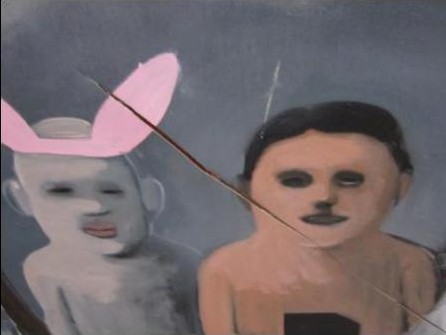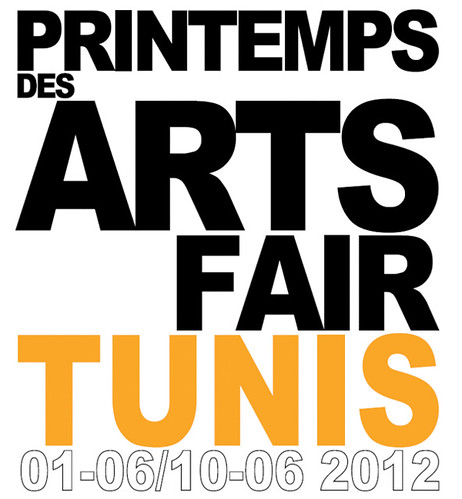6 Aug 2012 | Middle East and North Africa, Tunisia
Tunisia’s ruling party, the Islamist Ennahdha movement, seek to criminalise blasphemy.
The Ennahdha party filed a blasphemy bill on 1 August in response to what their leaders describe as “a continuous increase in number of offences against the Sacred”. The bill aims to “providing legal protection to the Sacred”.
Ennahdha also complained about the absence of “a blasphemy legal basis” during the trial of Nessma TV boss Nabil Karoui, who in May was fined for “transgressing morality”, and “disturbing public order after broadcast the animated film Persepolis which shows depictions of God. Ennahdha believe he should have been convicted of “offending” religion.
The bill lists Allah, Prophets, the three Abrahamic books (the Quran, Bible, and Torah), Sunnah (the sayings and teachings of Prophet Muhammad), churches, synagogues, and the Kaaba (Muslims’ holiest shrine) as sacred.
“Cursing, insulting, mocking, undermining, and desecrating” any of these symbols could lead to a two-year jail term and a 2,000 TND fine (794 GBP). The proposed bill would also forbid the pictorial representation of God, and Prophets.
Hichem Snoussi, the Tunisian representative of the freedom of speech NGO Article 19, told Index:
In France, and Germany there is a law which prohibits the denial of the Holocaust. Such a law [a blasphemy act] could be passed … But, the “sacred” has to be defined in a very specific and detailed way. This definition should not be expanded, so that it would not stand in the way of art and creativity.
The move comes amid a fierce local debate about freedom of expression and religion, which culminated in the Tunis-based Printemps des Arts fair in June. The fair was accused by Islamists and the government of displaying artworks “offensive” to Islam. On 12 June, the Tunisian Ministry of Culture decided to temporarily close a gallery after ultra-conservative Islamists broke into the exhibition and destroyed three artworks.
“Today the debate on the “sacred” is part of electoral propaganda, and aims at diverting the public debate from its right direction,” Snoussi added. “We do not need chains. We need freedom to heal our past wounds.”
25 Jun 2012 | Middle East and North Africa
PRESS RELEASE
The International Freedom of Expression Exchange Tunisia Monitoring Group (IFEX-TMG), a coalition of 21 IFEX members [including Index on Censorship], is alarmed by the recent attacks in Tunisia on freedom of expression, in particular against artistic expression, in the name of religion.
On 10 June 2012, three ultra-conservative Islamists (reportedly two men and a woman), who were accompanied by a bailiff and a lawyer, toured the Palais El-Abdellia, an art gallery in Tunis, taking part in the Printemps des Arts modern contemporary art fair. The group demanded that the organisers take down two artworks which they claimed were offensive to Islam.
When their request was denied, the Islamists returned later that night with a large number of supporters and broke into the exhibition from the rear walls, burned the painting of Faten Gaddass, and tore to pieces two linen artworks, one by Mohamed Ben Slama, and the second by a French artist.
On 12 June, the Tunisian Ministry of Culture decided to temporarily close the gallery, after violent reactions in several Tunisian cities, including the capital Tunis. Ennahda ruling party claimed that some of the artworks were provocative and that they violated the “principles of Islam and the holy beliefs of Tunisian people.”
Furthermore, the Tunisian Minister of Culture, Mehdi Mabrouk, declared that some of the artworks exhibited at Printemps des Arts do in fact violate Islamic holy symbols, which the artists deny. He has also said that some of these artworks are now under investigation. After acknowledging the provocative role of art, on the morning of 14 June, Mabrouk told Radio Shems FM that six works deemed to be “provocative” had been confiscated.
At a press conference held on 12 June, the Minister announced that the government would likely present a bill to the National Constituent Assembly which would allow criminal charges to be brought against anyone who offends “the sacred.” Blasphemy laws are a clear violation of freedom of expression and would present a serious setback to human rights in Tunisia, say IFEX-TMG members.
Previously, on 27 May, Salafist groups attacked the playwright Rajab Al-Maqary in El Kef city. He subsequently suffered serious injuries after being beaten severely on his head and chest. He is still receiving treatment in a Tunis hospital.
IFEX-TMG strongly condemns the increasing use of violence against artists and writers by ultra-conservative groups. IFEX-TMG is particularly concerned about the closure of the exhibition in the Printemps des Arts gallery by the Ministry of Culture, rather than the guaranteeing of a safe environment in which artists can work freely, without threats or censorship.
IFEX-TMG members are additionally concerned about the ongoing detention of Tunisian blogger Jabeur Ben Abdallah Mejri, who was sentenced to seven and a half years’ imprisonment for publishing writings alleged to be offensive to Islam. Mejri’s appeal was held on 24 May and was adjourned. According to his lawyer, the new date has not been set yet. IFEX- TMG calls for his immediate release.
“It is disturbing that those entrusted to promote and defend freedom of expression in Tunisia would side with the dictates of radical groups that resort to violence and destruction to impose their views. The IFEX-TMG calls on the government to take robust steps to protect the right to free expression, so that citizens can enjoy this fundamental right without fear of retribution,” says Virginie Jouan, Chair of the IFEX-TMG.
For more information:
IFEX Tunisia Monitoring Group
Virginie Jouan, Chair
on behalf of the World Association of Newspapers and News Publishers (WAN-IFRA)
jouanvirginie (@) gmail.com
Facebook.com/IFEXTMG
Twitter: @IFEXTMG
Arabic Network for Human Rights Information
ARTICLE 19
Bahrain Center for Human Rights
Cairo Institute for Human Rights Studies
Canadian Journalists for Free Expression
Cartoonists Rights Network International
Egyptian Organization for Human Rights
Freedom House
Index on Censorship
International Federation of Journalists
International Federation of Library Associations and Institutions
International Press Institute
International Publishers Association
Journaliste en danger (JED)
Maharat Foundation (Skills Foundation)
Media Institute of Southern Africa
Norwegian PEN
World Association of Community Radio Broadcasters (AMARC)
World Association of Newspapers and News Publishers (WAN-IFRA)
World Press Freedom Committee
Writers in Prison Committee, PEN International
This press release is also available in French and Arabic
12 Jun 2012 | Middle East and North Africa, Tunisia
The Tunis Printemps des Arts (Spring of Arts), a modern contemporary art fair, ended on 10 June after 10 days of exhibitions and competition. The closing ceremony, which was supposed to be a celebration of art, was characterised by controversy, censorship and violence.
On Sunday afternoon, three ultra-conservative Islamists (reportedly two men and a woman) accompanied by a bailiff and a lawyer toured Palais El-Abdellia, the art gallery which hosted the fair’s closing ceremony. The group asked the fair organisers to take down two artworks they deemed “un-Islamic”.
One of the artworks in question illustrates a naked woman, whose intimate parts are covered by a Couscous plate (a popular Tunisian dish). The woman is surrounded by dark, bearded men. The second work illustrates a bearded superman carrying another bearded man in his arms.
“They said that they would come back at 6 pm, and that they would rather not find the paintings,” said Aicha Gorgi, a gallery owner and artist. “They did come back at 6pm, their number grew, and they gathered in front of Palais El-Abdelia,” she added.
Police interfered to prevent any clashes between the artists and the ultra-conservative group. But later on in the night and after the closure of the art gallery, the ultra-conservatives came back in larger numbers and succeeded in invading El-Abdelia art gallery. They burned and destroyed a number of artworks.

“Police did not allow them to enter, but they climbed over the rear walls and entered the gallery,” Gorgi said in a testimony given to Radio Mosaïque FM. “They burned the work of Faten Gaddass, and tore to pieces two linen artworks, one by Mohamed Ben Slama, and the second by a French artist. At my stand, I also found Aicha Filali’s work destroyed.”
This is not the only censorship story which characterised this year’s Printemps Des Arts edition. Last week, young Tunisian artist Elektro Jaye claimed that the state put pressure on the fair’s organisers to take down his work.


